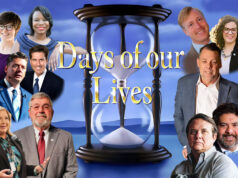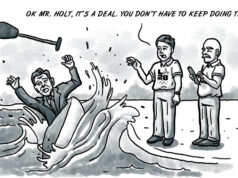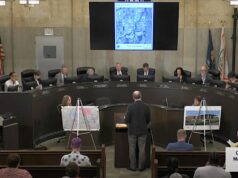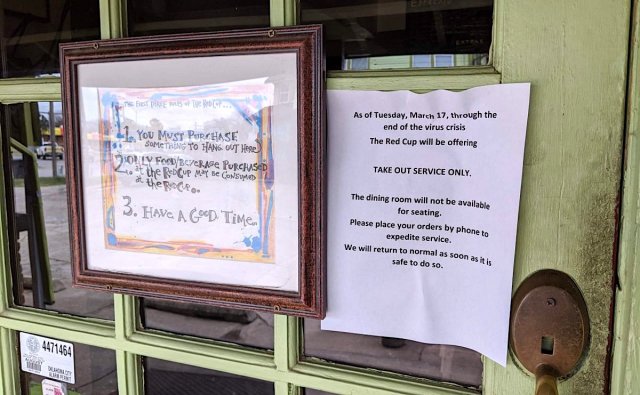

Bars and restaurants will be closed in Oklahoma’s largest cities as the world navigates the seemingly endless tumult created by the COVID-19 pandemic.
In order to help slow the spread of the virus, Oklahoma City Mayor David Holt ordered all food-serving establishments in the city to close by 12:01 a.m. on Wednesday, March 18. Venues without food, such as bars, were ordered to close by 5 p.m. today. The OKC closures also affect gyms, theaters, and other businesses. Food-service establishments are still allowed to serve drive-through and takeout orders, for now.
On Monday, Norman’s Mayor Breea Clark and Tulsa’s Mayor G.T. Bynum ordered similar closures in those cities.
The shutdowns are expected to last at least until April 12, and possibly longer.
This move to close businesses where people gather came after Oklahoma had its 17th confirmed case of COVID-19 and as the pandemic has grown throughout the country. Holt declared a state of emergency in the city Sunday, after the first case of local transmission was confirmed.
The closures, and the general public attitude toward COVID-19, have many in the food service industry filled with dread.
“The people I talk to are very shaken over all of this,” Oklahoma Restaurant Association president Jim Hopper said. “They are very scared. So many small independent restaurants don’t have a lot of cash reserves. In some cases they don’t have any. They’re able to pay themselves a salary and the rest goes into the business.”
Bartenders saw it coming
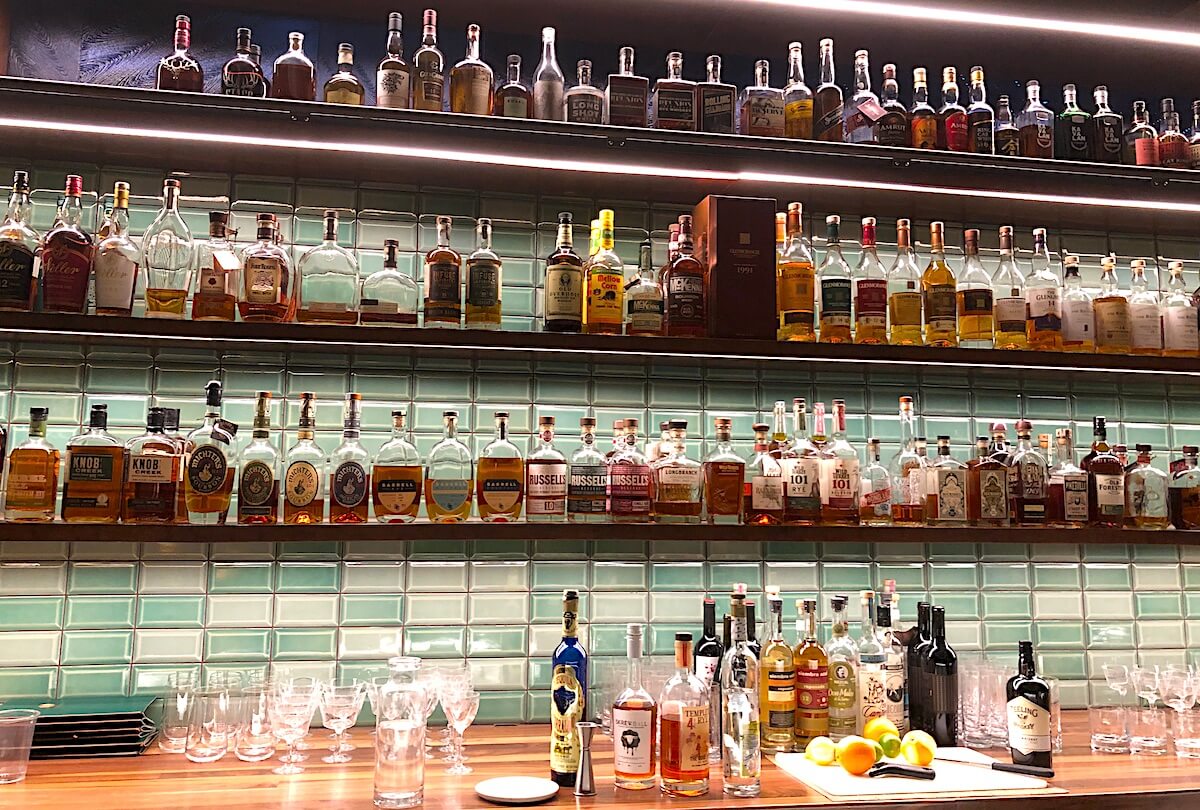
Gared Reinke noticed that at the Outback Steakhouse in Norman, where he tends bar, business started tapering off over the weekend.
But last week the mood was still light. He made jokes with customers about a “quarantini,” which is simply a martini consumed at a distance from other bar patrons.
But over the weekend, he said, the crowds began to evaporate.
“We have a regular who works in the poker room at a casino, and she mentioned that in 15 years she’s never seen thinner crowds,” Reinke said. “That’s how you know it’s bad. People will gamble even if we’re under a tornado warning. So that was astonishing to me. And, sure enough, my business started to drop off, too. I talked to a friend that worked last night (Monday), and he said he only served four people.”
Industry could be devastated
Oklahomans love to dine out. There are more than 7,000 restaurants in the state, generating $7.6 billion in sales in 2018, according to the National Restaurant Association. The industry also employs more than 184,000 Oklahomans.
There has been discussion of federal assistance to the airline and cruise industries in the wake of the pandemic, and Hopper hopes the restaurant industry will get some help as well.
“How do we help them — how do we tap into existing mechanisms to help owners keep cash in their pocket so they can pay rent, utilities and groceries?” he said. “How can we help their employees who can’t pay their bills? Those are the things we’re trying to deal with and hope will be addressed.”
Delaying payment of sales and ad valorem taxes would be a good first step, Hopper said.
“That would allow owners to keep some cash in their pocket at a time when they most need it,” Hopper said.
He said he hopes restaurants will be allowed to remain open for takeout orders.
“It’s easier for Chick-fil-A and Taco Bell, because a lot of their business is already built around drive-through service,” Hopper said. “And even those without that have been moving in that direction with take out. It’s been a growing trend, one that we’ll see continue to grow.”
Still, Hopper said some restaurants won’t make it.
“Some won’t survive,” he said. “That’s the reality. The margins are thin anyway, and you combine it with what’s going on — it’s going to be very difficult.”
‘I have a little bit saved up’
Reinke has likely worked his last shift at Outback for some time. He thinks he can hold out for a while, but he isn’t sure how long.
“I have a little bit saved up, so I’m somewhat prepared,” Reinke said. “That’s more than some of my co-workers. I was in a group chat last night with bartenders, and a lot of people are going to be hit hard.”
Reinke said one of his co-workers recently lost her husband and has been saddled with bills.
“Someone like me who is in their early 20’s can go back to their parents if things get really bad,” he said. “But there are people who can’t do that. She’s in her 50’s and has taken on all this weight of his debts and medical bills, and now she doesn’t have a job. What the hell is she supposed to do?”
Reinke knows there are many more like him in the industry who are going to be facing tough times. About 16 million people in the United States work in restaurants and bars.
“I’m choosing not to panic,” Reinke said. “That’s not going to help me or the situation.”
‘We’re absolutely going to weather the storm’
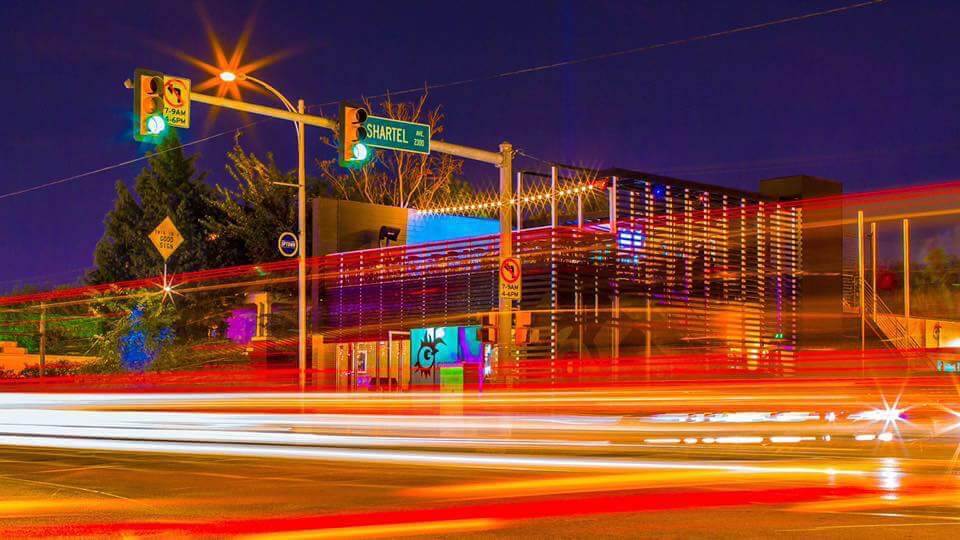
Jarrod Friedel spent Tuesday morning getting on with the grim task of calling most of his staff to tell them that they’re going to be out of work for a while.
Friedel is a co-owner of Guyutes, an Oklahoma City bar and restaurant on Northwest 23rd Street. On any given weekend night, he’d usually have 10 to 12 people working. This Friday, as Guyutes transitions to a takeout-only restaurant, there will be just three people on the clock.
“It wasn’t fun,” Friedel said of making those calls. “Telling people you work with they’re not going to be able to work for a while and the worst is probably coming.”
Friedel said that all his employees took the news in stride, but it doesn’t erase the fact that his business, like many others, could be pushed to the brink by COVID-19.
The restaurant will concentrate on takeout orders and is putting together a plan for deliveries. But revenue isn’t the only thing that will be lost with the suspension of sit-down dining.
“It used to be a treat but it really is kind of crazy how much the city relies on eating out,” Guyutes manager Katie Wicks said. “Now people will get to-go food. But it’s not the same. People come for the atmosphere of a restaurant or bar, and that will be the biggest downfall in this.”
But Friedel is defiant about the future of his business. He said he and his partner will go without, for now.
“We are absolutely going to weather the storm,” he said. “We’re not going to pay ourselves a salary anytime soon. We’re going to keep an eye on the bank account and keep the lights on. We’ve worked way too hard to let it go in a month.”











